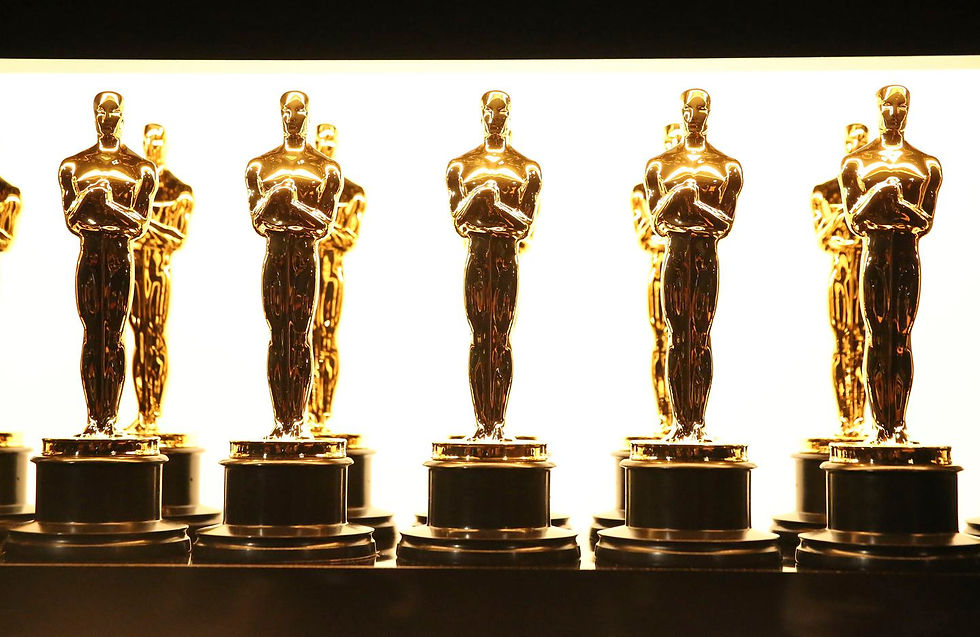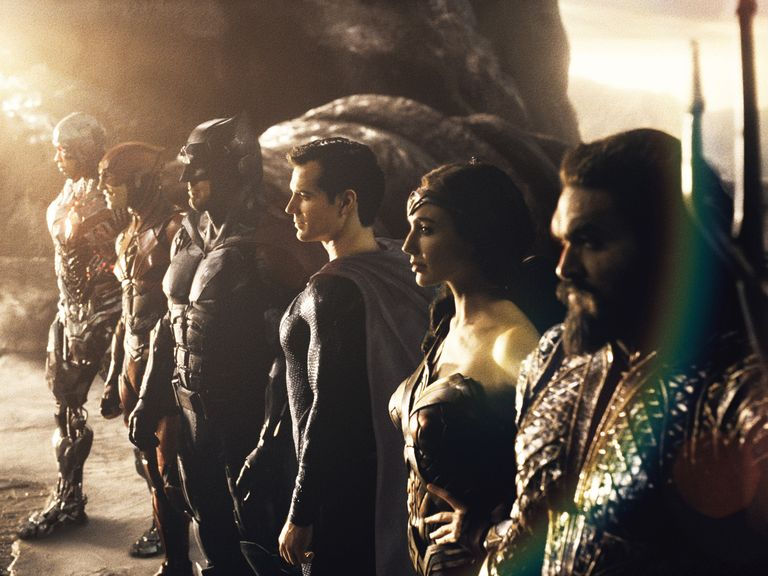The slow death of the Academy Awards, why now?
- Igor Muzyka

- May 21, 2021
- 6 min read

I remember back in my teenage years, sitting there, excited about the newest academy awards, announcing my intention to watch them through and through. Seeing all those people I admired on the silver screen, go around in their fancy dresses and costumes. To experience them getting their often long awaited, golden statuette… the amount of excitement and passion is only comparable to my utmost hatred towards the awards now.
And it seems like I am not alone there. This year's Academy Awards, despite some notable achievements like the first Asian American female Oscar winner and a notable number of minorities in nominations, still received its all-time low viewership of just 9 million people. A 50% drop from last year [1]. And, while yes, a lot of award shows generally had low viewership this year, The Oscar is met with unique problems that make it stand out from the crowd.
I won’t act like a nostalgic snob here, stating that “back in the day Oscars were better” because the Oscar’s problems were there practically since its inception and it’s just the rest of us who realized it now.
First answer me a question, what do you think qualifies a movie to be considered for a nomination? Well, it’s not about the quality. To get a nomination a film must run in Los Angeles County for at least 7 consecutive days [2]. This disqualifies most indie and foreign films as well as some of the movies you may have watched on streaming services. Furthermore, the movie can’t be put on DVD and streaming services before or simultaneously with its theatrical screening. Prompting streaming services like Netflix or Prime video to essentially target which movies are going to be viable, in order to push them to theaters before the streaming services, such as movies like” Marriage story", "The Irishman'', “One night in Miami” and' 'Mank”. You need backing in order to be eligible, so the only movies that even have a shot at winning a statuette are either big budget releases that they themselves aim at winning the awards, or occasionally smaller foreign and maybe local indie movies that get popular enough to be distributed by a big studio in America. You may say,” Well last year Parasite by a Korean director Bong Joon-Ho won the main award, and before that the Mexican production Roma, by Alfonso Cuaron, got nominated for best picture, isn’t it a sign of change?[3] Well, both of those directors have previously worked with American studios, having extensive connections to the industry which subsequently gave them more shots at the awards. These are good movies, but you won’t see anybody from outside of America who would manage to create a movie at the same level of quality as those two that got nominated. They would simply have no connections to do so.
Secondly, recent scandals like the infamous “Oscar so white” or how last year there were no women nominated in the director category. These are symptoms of the Academy’s structure; however, the disease lies at its core. Unlike some other awards that have panels with judges or audience voting, the academy awards are decided by members of the academy. These are around 9000 people who are predominantly actors, the majority of which are white males in their sixties [4]. Almost no major critics take part in judging the supposed “movies of the year “and since it’s a predominantly white male crowd that votes for those movies, most of the nominees are consequently white males which produce movies that cater to white male audiences. Yes, the “black movies” can take a win occasionally, but with the exception of Moonlight, those movies either talk about racism in past terms like “12 years a slave” or create a white male savior narrative, like “The Green book” did. Moreover, since the academics also work in the movie industry, nothing really stops them from voting for familiar faces. Which moves us to the topic of “Oscar campaigns”.
The notion of the Oscar campaign refers to when Studios spend millions of dollars to “sell” their movies to the Academy. They hire positions of “campaign managers'' in order to successfully promote their movies. Just like politicians on stage, studios create “narratives’’ for their films in order to give them more importance in the eyes of Academy voters. Why would the studios do this? Money. There are considerable bumps in the box-office, after movies get their nominations and wins. For example, King’s Speech, a 2010 Oscar winner, got a 66% increase in revenue after its record-breaking 12 Oscar nods [5]. Recently Parasite tripled its gross after winning Best Picture [6]. Campaigns hurt the notion of choosing movies based on their value as art and make the Academy look more like the political election races than film awards like Cannes or Berlinale. This often makes studios focus on pushing the more “electable” movie forward. For example, let's take two Warner Brothers movies: The Joker, received mixed results from critics, yet it got a huge box-office, and had a bigger Oscar campaign than Richard Jewell, a well-received Clint Eastwood film with modest box-office success. Resulting in the former receiving 11 Oscar nods and the latter just 1. However, the most famous example of campaigning was with the notorious producer (and now convicted rapist) Harvey Weinstein. At the 71st Academy Awards ceremony the almost universally accepted forerunner was Saving Private Ryan - a Steven Spielberg movie, now considered to be a classic that changed the way we see war films. Yet when Harrison Ford went on stage and announced the winner, everyone was surprised when Shakespeare in Love (a Weinstein production) took the prize. Harvey had a massive influence in Hollywood and his Oscar campaigns changed the way the Academy works. He used tactics like targeted ads and directly influenced the voters, being massively successful in his efforts. Weinstein produced films have received an astonishing 341 nominations and 81 wins overall [7]. This includes movies like The English Patient, The Artist, Chicago and the already mentioned King's Speech. Those tactics are still seen today with various studios. And they show how wealth and power can buy you the way through the Oscars.
Finally, there is the concept of “Oscar bait”. You have probably heard about this term; Oscar bait movies refers to practice of creating a specific type of film that suits the Academy’s liking [8]. Time has shown that the Oscars prefer specific attributes that the movie has over others. Among movies the Academy prefers historic, character driven dramas (Green Book, 12 years a Slave, the Help, The English patient, Hacksaw Ridge…), or events either set in Hollywood or about actors (Once Upon a time in Hollywood, The Artist, Birdman, A Star is Born and recently Mank...). With the actor nominations there are clear preferences of characters playing historical figures (Daniel Day-Lewis in Lincoln, Ben Kingsley in Gandhi, Sean Penn in “Milk”) or able-bodied people playing someone with disability (Robert De Niro in Awakenings, Julianne Moore in Still Alice, Robin Williams in Fisher King, Joaquin Phoenix in Joker,). And with the best animated feature nod, the Oscar almost exclusively goes to Disney created movies. Such preferences create a vicious cycle as studios try to cater to the Academy, while the Academy prompts studios to put emphasis on those traits. This primarily excludes a lot of more experimental and progressive movies from being nominated, in favor of playing it safe with nominations.
So, what's the conclusion that we can make out of all of this? Well, Oscars are a highly elitist award that has major biases. They are not in touch with modern distribution services and they are a platform for studios in order to boost their movie sales. They are also biased towards a white, English speaking crowd. So, can you really blame people for being less and less interested every year?
Regardless, it's important to stress that a movie being nominated for the academy awards does not make it unworthy. There are plenty of amazing movies that get nominated, and while not watching the Oscars themselves, I frequently watch most of the movies that get a nod at the Awards. It's just that with all the information above, we can’t treat the Oscars like “The biggest movie awards” and “a celebration of cinema”. The only thing that the Academy celebrates is itself. And yes, they may prove to try and change something recently. There have been more awards awarded to women as well as minorities and foreign language movies having a bigger presence at the awards.
Maybe, this will be something that is going to save the awards in their future and it's still unlikely that they will fall into obscurity any time soon, but until they properly change, I could never relive the experiences of being a teenager, sitting there with excitement, waiting for a true celebration of cinema.

Comments